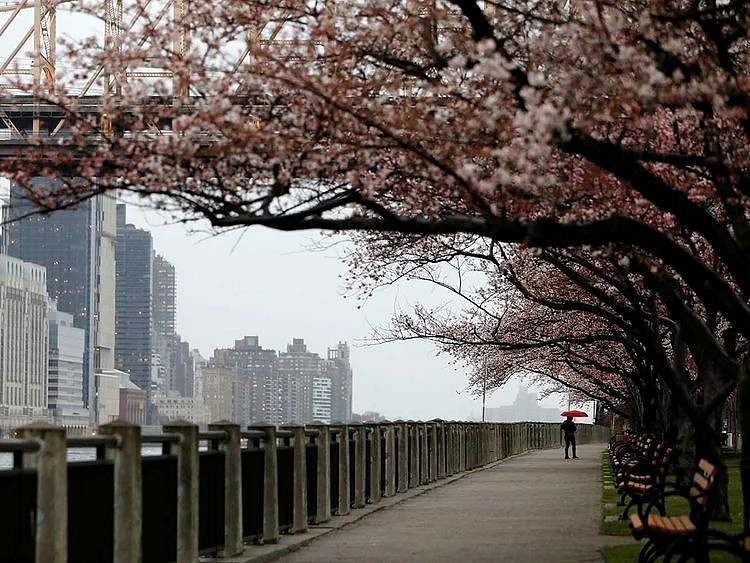A distressed America seeks to heal in 2021
Life will return to normal — but it will not be the same. There will be change.

One can say, without seeming resort to hyperbole, that in 2020 America found itself, as it battled a calamitous pandemic, broken in back and spirit, robbed in title and entitlement, of its cocksure swagger as leader of the fee world, with its habitual sense of élan transfigured into existential despair. The coronavirus, which in March began its assault on America, the wealthiest and most powerful nation on earth, had shown itself mightier than any mighty superpower.
After the economy had tanked — with 20 million unemployed — and more infected Americans were dying every day than perished in 9/11, it became apparent that the virus had not been the fleeting episode that President Trump had insisted that it was. It was instead the biggest disaster in modern American history and lay bare American society’s deepest vulnerabilities.
Yet, following the discovery by year’s end of new vaccines providing acquired immunity against the contagion, and the election of a new President more anchored in objective reality, Americans began to take a deep breath and look forward to stealing a march on the new year’s challenges.
Help, so to speak, is on the way.
Americans in recovery mode
There’s a post-pandemic world awaiting a distressed America as it cautiously welcomes 2021 and, though still throwing furtive glances over their shoulders, Americans appear to be in recovery mode. And, yes, the outlook is good. By md-2021, after half the population had been immunised and a third having acquired natural immunity, the macabre shadow of the virus will, as projected, begin to recede.
And there’s no society better prepared and more enterprising at mopping up than American society. The consensus among diverse financial analysts is that the economy is primed for recovery, growth and continued adaptation to a new normal, including, say, a work-from-home, shop-from-home age.
All well and good at home, but what of America abroad, where its influence, not to mention prestige is at stake? Will its diplomats return to sashaying around international forums, dominating the terms of international agreements?
The previous administration’s America First Policy had created some rifts between Washington and some of its allies. If these allies are these days sighing with relief, it is because they now expect — and know they will get — a more traditional and collaborative approach from the new chief executive in the White House. No question hence that the departure of Donald J. Trump will have an impact.
Yes, America will begin to heal and reassemble itself in 2021. Life will return to normal — but it will not be the same. There will be change. Nothing wrong with change. We are used to it, adapt to it and often welcome it. What we rue in life is not change but loss.
Small businesses may go under
Consider this. While well-funded landmarks like museums, libraries, concert halls, chain movie theatres, sports stadiums and the like, shuttered during the pandemic, will, in their own good time, surely reopen — they are, as they say, too big to fail — Mom and pop businesses, piteously helpless at fending for themselves, landmarks we had grown accustomed to seeing in our neighbourhoods, and to treasure in our quotidian lives, may go under. And, trust me on this one, there’s massive echo of that sense of sad but ineluctable loss resounding among Americans.
In an engaging front-page article in the New York Times two Sundays ago, titled “A Farewell to the Landmarks We Lost”, from which I quote at length here, the reporter, Jack Healy, wistfully writes in his lead: “We gather today to mourn the 150-year-old restaurant that served up platters of fried chicken and creamed corn in Abilene, Kan.
To bid farewell to the New Orleans cafe that was a destination for huge crab omelettes and endless conversation. To raise one last glass to the tavern in Cambridge, Mass. where the regulars arrived at 8am and the Austin diner where Janis Joplin nearly sang the neon lights off the walls.
“They were local landmarks — watering holes, shops, and haunts that weathered recessions and gentrification, world wars and the Great Depression — only to succumb to the economic ravages of the coronavirus: This is their obituary.
“Thousands of businesses have closed during the pandemic, but the demise of so many beloved hangouts cuts especially deep. They were woven into the identity of big cities and small towns ... Some had been around a century. And who will be left standing, to hold our memories and knit our communities together, when this pandemic is over?”.
Perhaps one can take solace in what Rumi (d. 1273), the poet, Sufi mystic, and polymath, averred about the subject. “Do not grieve”, he said. “Anything you lose comes around in another form”. Amen.
— Fawaz Turki is a journalist, academic and author based in Washington. He is the author of The Disinherited: Journal of a Palestinian Exile
Sign up for the Daily Briefing
Get the latest news and updates straight to your inbox
Network Links
GN StoreDownload our app
© Al Nisr Publishing LLC 2026. All rights reserved.